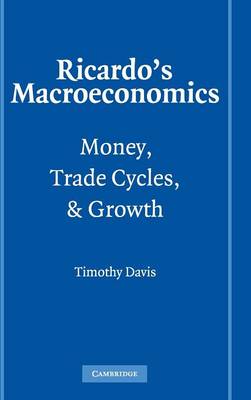The outline of modern macroeconomics took shape in Britain in the early nineteenth century thanks, in part, to David Ricardo, one of the most influential economists of the time. Britain was challenged by monetary inflation, industrial unemployment and the loss of jobs abroad. Ricardo pointed the way forward. As a financier and Member of Parliament, he was well versed in politics and commercial affairs. His expertise is shown by the practicality of his proposals, including the resumption of the gold standard, which was essential given the destabilizing policy of the Bank of England. Ricardo's expertise appears also in his debate with T. R. Malthus about whether an industrial economy can suffer a prolonged depression. Say's Law of Markets and the Quantity Theory of Money figure prominently in his works, but not in an extreme form. He was instead a subtle theorist, recognizing the non-neutrality of money, trade depressions and unemployment.
- ISBN13 9780521844741
- Publish Date 2 May 2005
- Publish Status Active
- Out of Print 7 May 2024
- Publish Country GB
- Imprint Cambridge University Press
- Format Hardcover
- Pages 330
- Language English
